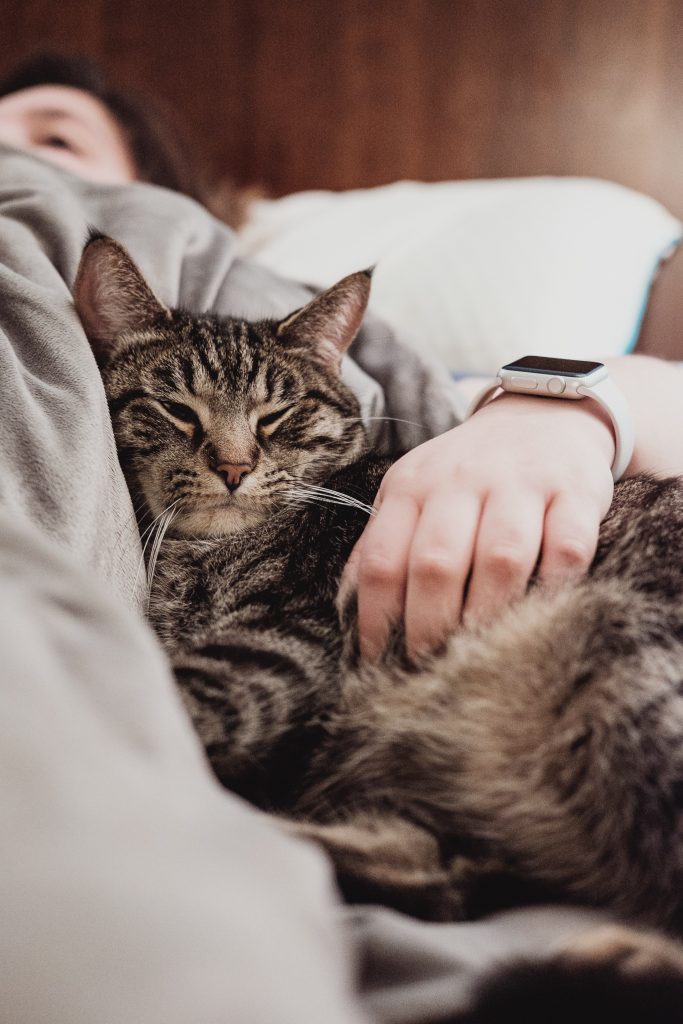is an important topic that many pet owners may not be aware of. In this article, you will learn why it is essential to include your pets in your estate planning and how to go about doing it. We will discuss the various options available, such as creating a pet trust or designating a caretaker for your furry friend. By the end of this article, you will have a clear understanding of the steps you need to take to ensure that your beloved pet is taken care of after your passing. Don’t hesitate to contact the listed estate planning lawyer for further guidance on this matter.
Introduction to Estate Planning for Pets
Estate planning is a crucial aspect of preparing for the future, and it’s not just limited to human beneficiaries. As a pet owner, you have the responsibility of ensuring the well-being and care of your furry friends even after you’re no longer able to do so. This is where estate planning for pets comes into play.
Understanding the importance of estate planning for pets
Pets are more than just pets – they are valued members of our family. Just like you would include provisions for your family members in your estate plan, it is equally important to consider your pets’ welfare. By incorporating your beloved pets into your estate planning, you can ensure that they are provided for and receive the love and care they deserve even after you’re gone.
Common misconceptions about estate planning for pets
There are a few misconceptions surrounding estate planning for pets that often deter pet owners from taking action. One common misconception is that pets can be included as beneficiaries in a traditional will. However, this is not the best approach, as a will can be contested, delayed, or subject to probate, potentially causing unnecessary stress and delay in providing for your pets’ needs.
Why estate planning for pets is necessary
Estate planning for pets provides you with peace of mind, knowing that your four-legged companions will continue to receive proper care and attention after your passing. Without proper planning, your pets may face an uncertain future, potentially ending up in a shelter or with someone who may not have their best interests at heart. By taking the time to create an estate plan that includes your pets, you can ensure their continued well-being and happiness.
Components of Estate Planning for Pets
Identifying a caregiver for your pet
One of the first steps in estate planning for pets is identifying a suitable caregiver who will be responsible for your pet’s long-term care. This could be a family member, friend, or even a trusted animal shelter or rescue organization. It’s important to choose someone who is not only willing but also capable of providing love, attention, and the necessary resources to care for your pet.
Writing a pet trust
A pet trust is a legal document that allows you to set aside funds and assets specifically for the care of your pet(s) after your passing. This ensures that financial resources are available to cover their veterinary care, food, grooming, and any other needs they may have. It also provides guidelines for how the funds should be used and managed.
Appointing a trustee for the pet trust
When creating a pet trust, it’s necessary to appoint a trustee who will oversee the funds and ensure they are used for the intended purpose. This person should be someone you trust, who has your pet’s best interests at heart. The trustee should also have financial responsibility and the ability to make sound decisions regarding your pet’s care.

This image is property of images.unsplash.com.
Choosing a Caregiver for Your Pet
Factors to consider when selecting a caregiver
When selecting a caregiver for your pet, there are several important factors to consider. Firstly, you should ensure that the person is willing and able to take on the responsibility of caring for your pet. They should have a genuine love for animals and the time and resources to devote to their care. Additionally, it’s essential to choose someone who lives a stable lifestyle and is likely to outlive your pet.
Detailed instructions for the caregiver
Alongside choosing a caregiver, it’s crucial to provide them with detailed instructions on how to care for your pet. This includes information about their diet, medical history, vaccinations, grooming needs, and any other specific requirements. This will help ensure a smooth transition and minimize any stress or confusion for your pet.
Backup options for the caregiver
Life is unpredictable, and circumstances may change. It’s therefore essential to have backup options in place in case your primary caregiver is unable to fulfill their role. This can include identifying secondary caregivers or alternative arrangements such as a reputable animal sanctuary or rescue organization. By planning for contingencies, you can ensure that your pet will always have a loving and secure home.
Creating a Pet Trust
Understanding the purpose and benefits of a pet trust
A pet trust serves as a legally binding document that provides for the seamless continuation of your pet’s care, even when you’re no longer able to do so. By creating a pet trust, you can ensure that your pet will be provided for financially and that their needs will be met according to your specifications. It provides peace of mind, knowing that your pet will continue to receive the care they deserve.
Determining the amount of funds to allocate in the trust
When establishing a pet trust, it’s essential to determine the appropriate amount of funds to allocate. This includes considering factors such as your pet’s age, breed, and specific needs. It’s important to consult with your estate planning lawyer to ensure that the funds set aside are reasonable and adequate for your pet’s long-term care.
Conditions and requirements to include in the trust
A pet trust allows you to outline specific conditions and requirements for your pet’s care. For example, you may designate how often your pet should receive veterinary check-ups, the type of food they should be fed, or any specific daily routines they should follow. By including these provisions in the trust, you can ensure that your pet’s lifestyle and well-being are maintained according to your wishes.
Appointing a Trustee for the Pet Trust
Roles and responsibilities of a trustee
The trustee of a pet trust plays a crucial role in ensuring that your instructions are carried out and the trust is managed appropriately. Their responsibilities include overseeing the funds, managing investments, making the necessary payments for your pet’s care, and ensuring that the caregiver has all the resources they need to provide for your pet.
Qualities to look for in a trustee
When appointing a trustee, it’s important to choose someone who is reliable, responsible, and trustworthy. They should have a deep understanding of your pet’s needs and be committed to adhering to your wishes as outlined in the trust. Additionally, it is beneficial if the trustee has some level of financial knowledge or access to professional advice to manage the funds effectively.
Ensuring accountability and transparency
To ensure transparency and accountability in the management of the trust, it’s important to include provisions for regular reporting to beneficiaries or interested parties. This helps to provide reassurance that the funds are being used solely for the benefit of your pet and that the trustee is fulfilling their duties and obligations.
Updating and Reviewing Your Estate Plan
Regularly reviewing and updating your pet’s estate plan
Life is full of changes, and it’s important to regularly review and update your pet’s estate plan to reflect any new circumstances. This includes changes to your pet’s needs or medical conditions, as well as changes to your caregiver’s or trustee’s situation. By keeping your estate plan current, you can ensure that your pet’s care arrangements remain up-to-date.
Changes in circumstances that may require revisions
Several circumstances may necessitate revisions to your pet’s estate plan. This includes changes in your financial situation, the birth or adoption of new pets, or changes in relationships with potential caregivers or trustees. By promptly addressing any changes, you can ensure that your pet will continue to be well-cared for, regardless of any unexpected events.
The importance of including your pet’s estate plan in your overall plan
Integrating your pet’s estate plan into your overall estate planning is essential. By including your pet in your will, trust, or other estate planning documents, you can coordinate their care with the distribution of your assets and ensure that all aspects of your plan align.

This image is property of images.unsplash.com.
Legal Considerations in Estate Planning for Pets
Legality and enforceability of pet trusts
Pet trusts are legally recognized in many jurisdictions, providing pet owners with peace of mind. However, the enforceability of pet trusts can vary from state to state or country to country. It’s therefore crucial to consult with an estate planning lawyer who is familiar with the laws in your jurisdiction to ensure that your pet trust will be legally binding and enforceable.
Jurisdiction-specific laws regarding pet trusts
The laws regarding pet trusts can vary greatly depending on your jurisdiction. Some states have specific provisions addressing pet trusts, while others may require the inclusion of certain language or formatting to ensure validity. Consulting with an estate planning lawyer who is knowledgeable about the laws in your area can greatly simplify the process and provide you with the necessary guidance.
Working with an estate planning lawyer
Estate planning for pets can be complex, and it’s advisable to work with an experienced estate planning lawyer who specializes in this area. They can guide you through the process, ensure that your estate plan is legally sound, and address any specific concerns or questions you may have. A lawyer can also assist with drafting the necessary legal documents, such as pet trusts, to ensure that your wishes are properly documented.
Taking Immediate Action
Contacting an estate planning lawyer for a consultation
If you haven’t already done so, taking immediate action and contacting an estate planning lawyer is a crucial step in securing your pet’s future. A consultation with a professional in this field will provide the guidance and support you need to properly structure your pet’s estate plan. They can assess your unique situation, answer any questions you may have, and assist you in creating a comprehensive estate plan that includes your beloved pets.
Gathering necessary documents for the process
When meeting with an estate planning lawyer, it’s important to gather all relevant documents relating to your pets, including adoption papers, medical records, and information about their daily care routines. These documents will help inform the lawyer’s understanding of your pet’s needs and assist in drafting a detailed estate plan that meets your requirements.
Understanding the timeline for estate planning for pets
Estate planning for pets is not a process that should be rushed. It requires careful consideration and consultation with professionals. The timeline for estate planning can vary depending on the complexity of your situation and the specific requirements of your pet’s care. It’s advisable to start the process as soon as possible to ensure adequate time for discussion, drafting, and review of your estate plan.

This image is property of images.unsplash.com.
Resources for Further Assistance
Links to organizations specializing in estate planning for pets
Several organizations specialize in estate planning for pets and can provide valuable resources and information. Websites such as the Humane Society or the American Society for the Prevention of Cruelty to Animals (ASPCA) offer guidance on estate planning for pets, including sample pet trust forms and relevant legal statutes.
Relevant books and publications on the topic
There are also various books and publications available that delve deeper into the topic of estate planning for pets. These resources can provide additional insights and advice for pet owners who want to ensure their pets are cared for in the event of their passing.
Online forums and communities for pet owners
Online forums and communities provide a supportive environment for pet owners to connect, share experiences, and seek advice on estate planning for pets. Participating in these communities can help you gather firsthand experiences and learn from others who have gone through the estate planning process for their pets.
Conclusion
Estate planning for pets is a critical step in securing the future well-being of your furry companions. By including your pets in your estate plan, you can ensure that they receive the love, care, and resources they need, even when you’re no longer able to provide it yourself. It’s important to take immediate action, consult with an estate planning lawyer, and develop a comprehensive plan that reflects your pets’ specific needs. By prioritizing your pets’ future, you can rest assured knowing that they will be taken care of just as you would want.



Leave a Reply